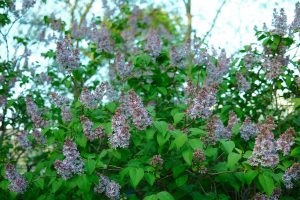
16-16-16 for Fall Vegetables: Balanced Nutrition for Leafy Greens and Root Crops
October is one of the most rewarding times for vegetable growers. Cooler temperatures create the perfect conditions for leafy greens like spinach, kale, and lettuce,

Your lawn may survive summer—but the goal is to thrive. When temperatures rise and rainfall decreases, proper feeding makes all the difference between scorched turf and a lush green carpet. The secret? Applying the right summer fertilizer based on heat, soil type, and season-specific grass needs.
In this guide, we’ll show you how to pick the perfect fertilizer from Supply Solutions LLC, time your applications for best results, and avoid common summer feeding mistakes.
Heat stress, drought, and high foot traffic take a toll on grass. Common summer lawn problems include:
Even well-maintained lawns may enter dormancy during long hot stretches. Fertilization helps support deep roots, green-up, and turf resilience.
✔ Nitrogen – Encourages green color and shoot growth
✔ Potassium – Improves drought resistance and stress recovery
✔ Iron and Micronutrients – Enhance color without excessive top growth
Avoid high-phosphorus fertilizers unless a soil test shows deficiency. Overuse can lead to runoff and weed issues.
| Month | Fertilizer | Purpose |
|---|---|---|
| June | 12-6-6 Liquid | Boost growth & color |
| July | Ammonium Sulfate | Add nitrogen + sulfur in alkaline soils |
| August | 10-10-10 Fish Fertilizer | Sustain greening and improve drought defense |
| Symptom | Likely Issue | Solution |
| Grass turning yellow | Nitrogen deficiency | Apply 12-6-6 or ammonium sulfate |
| Patchy browning | Heat/drought stress | Increase watering, avoid feeding until moist |
| Weeds increasing | Poor soil coverage or weak turf | Fertilize + overseed in fall |
A homeowner in a hot southern climate used 12-6-6 in June, followed by 10-10-10 fish fertilizer every three weeks. By late summer, their lawn had stayed green and dense, while neighbors’ lawns were struggling.
Summer doesn’t have to mean lawn decline. The right fertilizer can:
Need help finding the perfect summer fertilizer for your soil and grass type? Supply Solutions LLC offers expert support and the exact formulas your lawn needs.
Let’s green up your summer turf—contact us today:
Smart feeding = stronger grass. Beat the heat with the right lawn care nutrition.

October is one of the most rewarding times for vegetable growers. Cooler temperatures create the perfect conditions for leafy greens like spinach, kale, and lettuce,

Landscapes in October may look like they are preparing for rest, but the work happening below the surface is just as important as the visible
Give us a call or visit our store, and we’ll help you find the right solution for your business.
© Supply Solutions LLC 2025